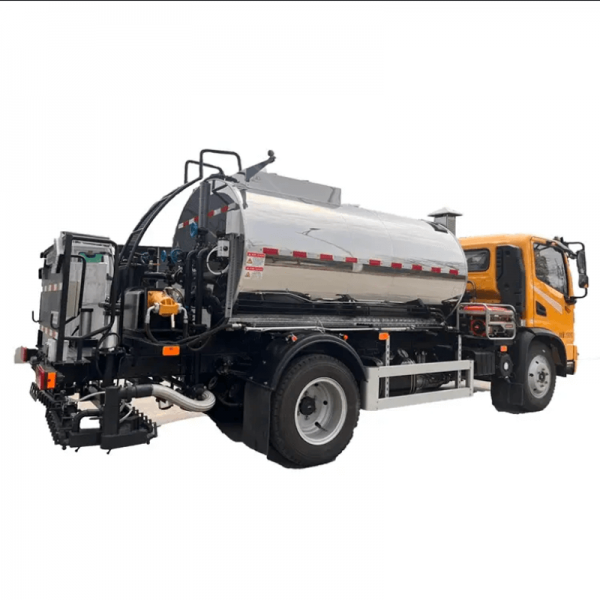The Environmental Impact of Garbage Compactor Trucks A Comprehensive Analysis

Introduction
Garbage compactor trucks play a crucial role in managing waste in urban areas around the world. These specialized vehicles are designed to collect, transport, and compact solid waste, making the disposal process more efficient and cost-effective. However, the environmental impact of garbage compactor trucks is a topic of increasing concern as communities strive to become more sustainable and reduce their carbon footprint. In this article, we will explore the various environmental impacts of garbage compactor trucks, including their role in waste management, air and noise pollution, fuel consumption, and potential solutions for mitigating these impacts.
Waste Management and Recycling
Garbage compactor trucks are essential for waste management systems in urban environments. These trucks are used to collect solid waste from residential, commercial, and industrial areas and transport it to disposal sites such as landfills or recycling facilities. By compacting the waste, these trucks can carry larger volumes of garbage in each trip, reducing the number of trips required and the overall cost of waste collection and disposal.
One of the key environmental benefits of garbage compactor trucks is their role in promoting recycling and waste diversion. Many modern compactor trucks are equipped with separate compartments for different types of waste, allowing for the segregation of recyclable materials such as paper, plastic, and glass. This enables municipalities to divert recyclable materials from landfills and promote a more sustainable approach to waste management.
Air and Noise Pollution
Despite their important role in waste management, garbage compactor trucks can have significant negative impacts on the environment, particularly in terms of air and noise pollution. These trucks are typically powered by diesel engines, which emit harmful pollutants such as nitrogen oxides, particulate matter, and carbon monoxide. These emissions contribute to poor air quality and can have serious health effects on individuals living and working in proximity to waste collection routes.
In addition to air pollution, garbage compactor trucks are also a major source of noise pollution in urban areas. The loud engine noise, hydraulic systems, and compacting mechanisms of these trucks can disrupt the peace and quiet of residential neighborhoods, commercial districts, and other areas where waste collection takes place. Noise pollution has been linked to a range of health issues, including sleep disturbances, stress, and cardiovascular problems.
Fuel Consumption and Greenhouse Gas Emissions
Another significant environmental impact of garbage compactor trucks is their fuel consumption and greenhouse gas emissions. Diesel-powered trucks are known for their high fuel consumption, which contributes to the depletion of finite fossil fuel resources and increases carbon dioxide emissions, a major driver of climate change. The transportation sector is a significant contributor to global greenhouse gas emissions, and garbage compactor trucks play a role in this environmental challenge.
In addition to carbon dioxide emissions, diesel engines in garbage compactor trucks also release other greenhouse gases such as methane and nitrous oxide, which have even greater warming potentials than carbon dioxide. Methane is a potent greenhouse gas produced by the decomposition of organic waste in landfills, while nitrous oxide is a byproduct of diesel combustion that contributes to climate change and ozone depletion. By burning fossil fuels and emitting greenhouse gases, garbage compactor trucks are exacerbating the environmental impacts of waste management and transportation.
Mitigating Environmental Impacts
To address the environmental impacts of garbage compactor trucks, it is essential to implement strategies and technologies that promote sustainability and reduce emissions. One approach is to optimize waste collection routes and schedules to minimize the number of trips taken by compactor trucks, thereby reducing fuel consumption and emissions. By using data analytics and routing software, municipalities can plan more efficient collection routes that take into account factors such as traffic patterns, waste volumes, and geographic distribution.
Another key strategy for mitigating the environmental impacts of garbage compactor trucks is to transition to cleaner and more sustainable fuels and technologies. Electric-powered compactor trucks are an emerging solution that can help reduce emissions and dependence on fossil fuels. By electrifying the waste collection fleet, municipalities can eliminate tailpipe emissions and reduce the carbon footprint of waste management operations. In addition, renewable fuels such as biodiesel and compressed natural gas offer cleaner alternatives to traditional diesel fuel, helping to reduce air pollution and greenhouse gas emissions.
Furthermore, advancements in waste separation and recycling technologies can help minimize the environmental impacts of garbage compactor trucks by diverting recyclable materials from landfills and promoting a circular economy. By investing in facilities for sorting, processing, and recycling waste, municipalities can reduce the amount of waste sent to disposal sites and minimize the environmental footprint of waste management operations. Encouraging residents and businesses to recycle and compost their waste can also help reduce the volume of garbage collected by compactor trucks and promote a more sustainable approach to waste management.

Conclusion
Garbage compactor trucks play a vital role in waste management systems, helping to collect, transport, and compact solid waste in urban areas. However, redirected have significant environmental impacts, including air and noise pollution, fuel consumption, and greenhouse gas emissions. To address these challenges, it is essential to implement sustainable practices and technologies that promote efficiency, reduce emissions, and minimize the environmental footprint of waste management operations. By optimizing collection routes, transitioning to cleaner fuels and technologies, and investing in recycling infrastructure, municipalities can mitigate the environmental impacts of garbage compactor trucks and move towards a more sustainable approach to waste management.
